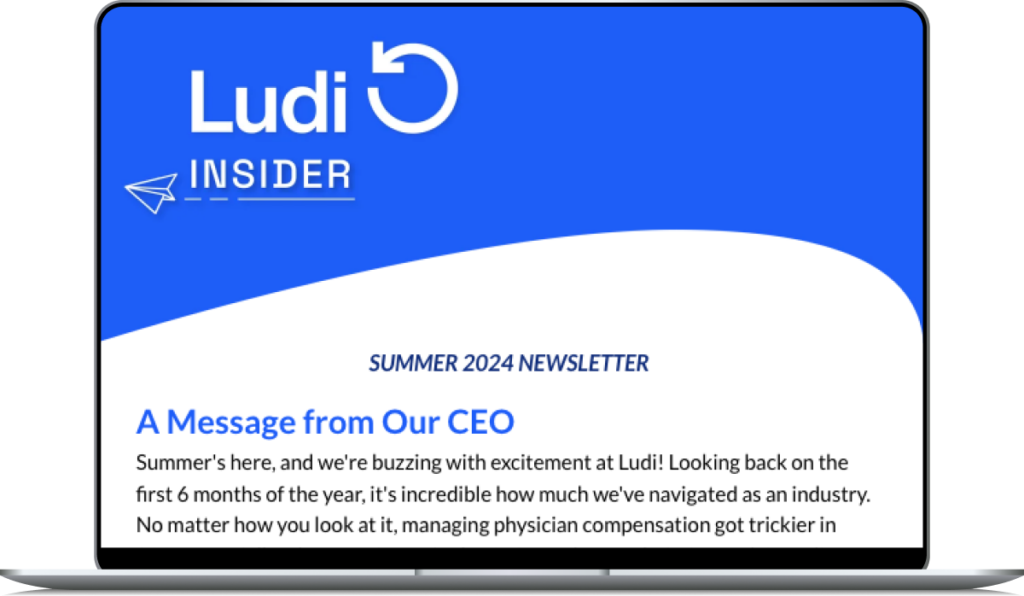This summer’s HFMA Annual Conference in Denver brought together healthcare’s financial decision-makers at a time when the industry is navigating immense pressure and opportunity. I had the privilege of co-leading a breakout session with two forward-thinking leaders (and Ludi clients): Marc Augsburger, CEO of Edgerton Hospital and Health Services, and Michael Everson, Finance Director at Froedtert ThedaCare Health. Their insights sparked real dialogue in the room and helped elevate the conversation around how we can reimagine healthcare finance for the future.
Walking the halls of HFMA, one thing was clear: while the financial pressure is real, so is the resilience. Conversations were grounded in the economic reality of rising costs and shrinking labor pools. However, there was also a strong undercurrent of forward-thinking optimism. Here are a few of the most persistent themes that came up in breakout sessions, hallway conversations, and exhibitor booths, along with some thoughts on where we go from here.
1. Invest in Tech Where It Counts
With hospital margins still lagging, the median year-to-date operating margins were just 1.3% as of May 2025, according to Kaufman Hall. Leaders are under pressure to invest smarter, not just more. That means business process automation is no longer a nice-to-have, but essential. We heard from many organizations that small, targeted technology deployments are yielding some of the biggest returns. One CFO mentioned their recent investment in automating physician time tracking saved their team hundreds of hours in manual reconciliation, freeing up staff for higher-value work and tightening the compliance loop in the process. Efficiency matters, but so does the ability to make informed decisions. Organizations are increasingly seeking tools that integrate performance data into workflows, enabling leaders to take action rather than simply reviewing reports.
Question to consider: Where are you seeing the best ROI from tech investments in your organization? Have you been surprised by which platforms have delivered the most value?
2. Re-imagining Leadership-Clinician Alignment
The labor market continues to pose challenges to hospitals, particularly in terms of clinical staffing. Yet one insight echoed across multiple sessions: alignment between leadership and clinical teams is often more valuable than any incentive plan. Still, that alignment can’t be built through emails and town halls alone. I heard several leaders discuss their success in breaking down silos by utilizing cross-functional task forces that bring together operations, finance, and clinical teams in the same room to co-design protocols and measure performance jointly. And the payoff? Improved staff retention, better morale, and even clinical outcomes. According to a 2024 Press Ganey study, hospitals that reported strong interdepartmental trust saw a 15% lower turnover rate among frontline staff compared to those that didn’t.
Reflection: What’s working in your organization to bridge the gap between finance and frontline care? How are you sustaining that connection over time?
3. Re-thinking the Metrics That Matter
Data overload was a recurring complaint at HFMA. Leaders are drowning in dashboards, but still asking: What actually matters? More than one speaker emphasized the importance of narrowing focus to key operational and strategic metrics. Specifically, those that directly inform reimbursement, staffing, or care quality. One health system I spoke with recently eliminated nearly 40% of their tracked KPIs after determining they had little influence on executive decision-making or care delivery. There’s also a growing appetite for real-time data reporting. If a metric is a month old by the time it hits leadership’s desk, it’s already too late. Increasingly, organizations are adopting nimble platforms that deliver performance insights at the physician department level, without burying teams in spreadsheets.
Key takeaway: Are your metrics driving change, or just taking up space? It’s worth re-evaluating which dashboards are truly informing strategy.
Optimism Amid the Challenges
While the economic and policy challenges are significant, ranging from site-neutral payment reform to growing scrutiny on physician comp models, the tone at HFMA reflected determination. Attendees were focused on finding solutions rather than dwelling on setbacks. Healthcare finance leaders are stepping into a new era where adaptability, data fluency, and cross-functional collaboration are the new power skills. As we rethink our approaches to compensation, operations, and performance management, we have to look beyond cost-cutting and focus on how to build something better in the process.
I’d love to hear from others. What stuck with you after HFMA? What tough conversations are you having back home? Connect with me here on LinkedIn, to share your takeaways and ideas for moving our industry forward.
